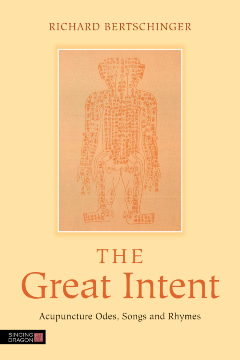
Additional Information
Book Details
Abstract
Songs and rhymes have been used by physicians for centuries in China as a means of memorising and passing on methods of practice and behaviour, moral attitudes, effective points, diagnostic tips and rules of thumb. These newly translated poems offer a rich insight into the life and thought of these skilled doctors, as well as practical indications for treatment. Contemporary acupuncturists can see from these poems the depths of the tradition, better understand a breadth of diagnostic skills and treatment planning, and as a result greatly improve their appreciation of intent within their own practice. The poems also serve as a gentle introduction to the philosophy behind acupuncture practice.
This is the first translation of these acupuncture odes, songs and rhymes from the Great Compendium of Acupuncture and Moxibustion compiled by the Chinese physician Yang Jizhou during late Ming China. The book includes a comprehensive introduction that places the work in historical, cultural, and medical context, a symptom index, a point index glossary and a list of helpful points for common signs and symptoms encountered in acupuncture and physiotherapy clinics.
This unique book would be of great interest of experience acupuncturists who wish to understand more about the complexities of traditional Chinese medicine (TCM) assessment, diagnosis and treatment.
Journal of the Acupuncture Association of Chartered Physiotherapists
It is a difficult job to read traditional Chinese medical canons in the classical style - even for the young Chinese - but an exceptional translation into English can miraculously benefit scholars worldwide who wish to study the real ancient meaning of Chinese medicine. Richard Bertschinger's The Great Intent is such a book.
Professor Dr Bo-Ying Ma, MD, MA, PhD, FRSM, Chairman of the Federation of Traditional Chinese Medicine, UK
The heritage of the ancient Chinese masters has made its way down to us via the written and the oral traditions, the latter partly in the form of songs and odes. Richard Bertschinger had the inspiration of translating for the Western world Yang Jizhou's written collection of these odes. The Great Intent is an absolute must for any practitioner of Classical Acupuncture.
Dr Hamid Montakab, author of Acupuncture for Insomnia and founder of the Academy of Chinese Healing Arts, Switzerland
If you love Chinese medicine, read this book. You will actually feel that you are part of a centuries-old tradition. In a way, it's a bit like having the handouts from a Ming dynasty college. But it's more. Richard, in a labour of love, conveys across centuries some of that ineffable "stuff" called wisdom.
John Hicks, joint principal and co-founder of the College of Integrated Chinese Medicine
Richard Bertschinger studied for years with the Taoist sage and Master, Gia-fu Feng. An acupuncturist, teacher of the healing arts, and translator of ancient Chinese texts, he works and practises in Somerset, England. He is the author of The Secret of Everlasting Life, Yijing, Shamanic Oracle of China and Everyday Qigong Practice, also published by Singing Dragon.
The Great Intent by Richard Bertschinger truly demonstrates that the Chinese acupuncturists were much more adept at using language to aid learning when compared to the simple mnemonics and acronyms used in Western medicine. This unique book would be of great interest to experienced acupuncturists wishing to understand more about the complexities of traditional assessment, diagnosis and treatment.
Helen Oakes, Clinical Editor of the Journal of the Acupuncture Association of Chartered Physiotherapists
